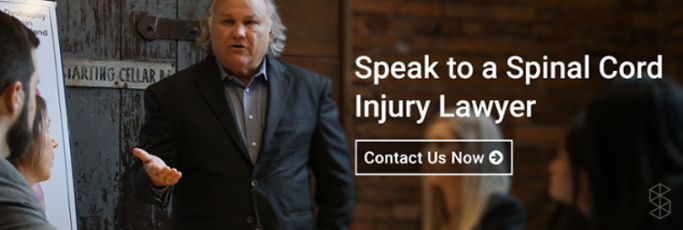A Warning of What May Come Due to Medicaid Privatization
For the past several months, we have shared multiple articles that concern the Medicaid programs in different states — including one on what you should know about SCI Medicaid coverage and another about how some states are embracing Medicaid privatization. The idea behind the change is for the state to achieve cost savings by reducing or eliminating what are perceived to be unnecessary expenses.
While this change may sound good on paper, Medicaid privatization can pose serious — even life-threatening — issues for people who are living with spinal cord injuries (SCIs) and other debilitating medical conditions. And, as states increasingly begin to change from supporting government-funded Medicaid programs to embracing the privatization of Medicaid, situations like that of Iowa residents Tom Mouw and Jamie Campbell are likely to become more common.
Mouw, an Iowan who was rendered a quadriplegic spinal cord injury survivor after a vehicle accident more than 20 years ago, died last year after the in-home medical services he received for more than two decades were denied repeatedly. This occurred after the state changed over to a privatized Medicaid program.
Because of his spinal cord injury, Mouw was unable to feed himself and was relying on a ventilator to breathe. However, for the decades before the Iowa Medicaid privatization, he was able to live in his family’s home with 24-hour care from his family and medical staff who were funded by the state’s previously government-funded Medicaid program.
Campbell, a C2 quadriplegic from the same state, also saw cuts to his Medicaid benefits after the Iowa Medicaid privatization. However, he was fortunate in that when he fought to keep his home health aide hours, he won. But, United Healthcare continues to try to cut his hours from 158 to 66 per month.
Feeling Concerned? You Should Be.
Make Your Voice Heard.
While it’s hard to fight the government and private healthcare industry regarding these essential services, it’s not impossible. Make it known to state lawmakers that you don’t want to see the Medicaid program in your state undergo Medicaid privatization.
It’s critical that all members of the spinal cord injury community — survivors, spouses, parents, children, friends, and supporters alike — make their voices and opinions heard to state legislators. You can do this by becoming a spinal cord injury and Medicaid advocate like Kevin Mullin.
Mullin, a quadriplegic SCI survivor, is one of the most outspoken spinal cord injury advocates in Florida. He is doing what he can to bring about the creation of a Working Disabled Medicaid Program in the state that would allow people with spinal cord injuries to work without fear of losing their healthcare benefits.
Consider All of Your Options for Managing Finances
The average costs of spinal cord injuries increased to more than $1.1 million for high tetraplegia (C1-C4) spinal cord injuries in the first year and $191,436 for each subsequent year. As such, any potentially adverse changes to healthcare financial benefits due to Medicaid privatization can mean particularly serious business for someone with a cervical spinal cord injury.
In addition to becoming a Medicaid advocate, it’s essential for people living with spinal cord injuries and their families to look at alternative forms of private funding and ways to pay for the specialized care SCI survivors require on a daily basis. Some of these options include fundraising, crowdsourcing, and trading room and board for caregiver services.
Another avenue to private funding that some spinal cord injury survivors and their families consider is through litigation. By holding the people or entities who are responsible for your injury accountable, you can not only ensure that you receive justice but also the private funding that you require in our modern tumultuous political times.
Without private funding, spinal cord injury costs can be insurmountable. If you or someone you know could be facing this type of situation in the future, it may be time to speak with a spinal cord injury lawyer.
Get in touch with our team of experienced, knowledgeable, and understanding spinal cord injury lawyers by clicking on the link below. We can provide you with information relating to spinal cord injury litigation and answer your questions.
Stay Updated on Advancements On Traumatic Brain &
Spinal Cord Injuries
About the Author





